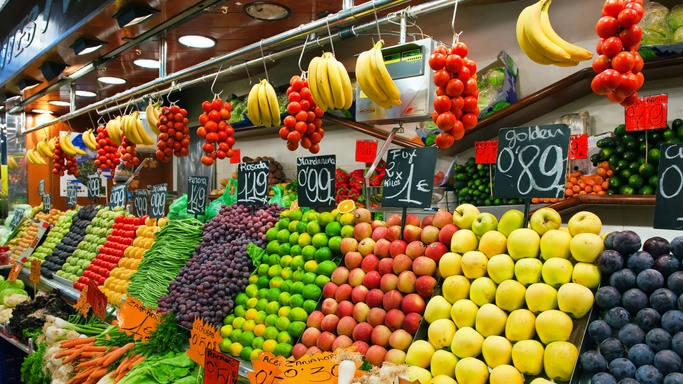Food deserts are a chronic issue in Black neighborhoods across the country and a persistent facet of environmental racism.
In an effort to combat this problem, a group of teens in the Austin neighborhood of Chicago are banding together to create a fresh food market at the site of a defunct liquor store.
Block Club Chicago profiled the youth-led effort, which is being supported by Christian nonprofit By the Hand Club for Kids.
The group hosted listening sessions where local teens could come and speak about the recent George Floyd protests as well as other issues around police brutality and racism.
Multiple children spoke out about the neighborhood's lack of fresh food markets and the overabundance of liquor stores, citing it as an example of the kind of inequality neighborhoods like Austin have to deal with.
According to Block Club Chicago, there are 12 liquor stores but only two fresh food markets within a half-mile radius of the site the kids plan to use. The issue came to a head when some of the community's grocery stores had to close their doors after being looted, CBS Chicago reported.
“What I heard coming out of that was that students wanted to take all those raw and powerful emotions and turn them into something good and do something from a social justice standpoint. The kids took the idea and ran with it,” said Donnita Travis, executive director of By the Hand. "This is a real entrepreneurship opportunity for them, but also an opportunity for them to bring food justice to our neighborhood."
The teens want to sell fresh vegetables and fruits at the market while also providing the area with cooking and nutrition classes. Travis said they are working on plans that will allow the teens to work at the market and learn business skills through the effort.
“We would have fresh fruits and vegetables, but it would also be a place where people feel safe and want to hang out. We could have some music and maybe we can do some healthy cooking and nutrition demonstrations and education, because not everyone knows or appreciates nutrition,” Travis said.
The project has received financial support and help from local sports stars and elected officials. NFL player Sam Acho, Blackhawks captain Jonathan Toews, Bears quarterback Mitch Trubisky, White Sox pitcher Lucas Giolito, Cubs outfielder Jason Heyward and St. Louis Cardinals first baseman Paul Goldschmidt have all pitched in to provide about $500,000 for the project.
With the money, the closed liquor store will be torn down, and By the Hand is recruiting architects to help design the new market. The site will be fully torn down over the next two weeks.
Hatchery Chicago is also joining in to provide curriculum assistance and help create culinary programs for teens interested in food industry jobs.
The teens have already run a pilot version of the market, which was visited by NFL Commissioner Roger Goodell, Alderman Emma Mitts and Mayor Lori Lightfoot.
Travis told Block Club Chicago that the team hopes to have the market up and running by August.
“People care. It’s a time for people to show up. I think our world has changed. So for us to be able to come together and say we’re going to lead that change, it means something,” Acho said.
A 2018 study published by Elsevier found that Chicago's Black communities were consistently suffering from a lack of locations to buy fresh food.
The study notes that white neighborhoods in the northern section of the city were largely unaffected by supermarket closures, particularly during the Great Recession. But Black communities on the south side of the city were drastically affected when even one market shut down.
"The researchers found that among African-American and socioeconomically disadvantaged residents of Chicago, access to healthy food was persistently poor and worsened in some areas following the economic shocks. However, these findings came even as the total number of supermarkets in Chicago increased over the time range observed. [Researcher Marynia Kolak] said closures and re-openings had virtually no impact in areas on the Chicago’s North Side neighborhoods she described as a 'food oasis.' But in South Side neighborhoods, Kolak and her colleagues found that just one store closure jeopardized the food security of an already low-access area," a news release about the study stated.

